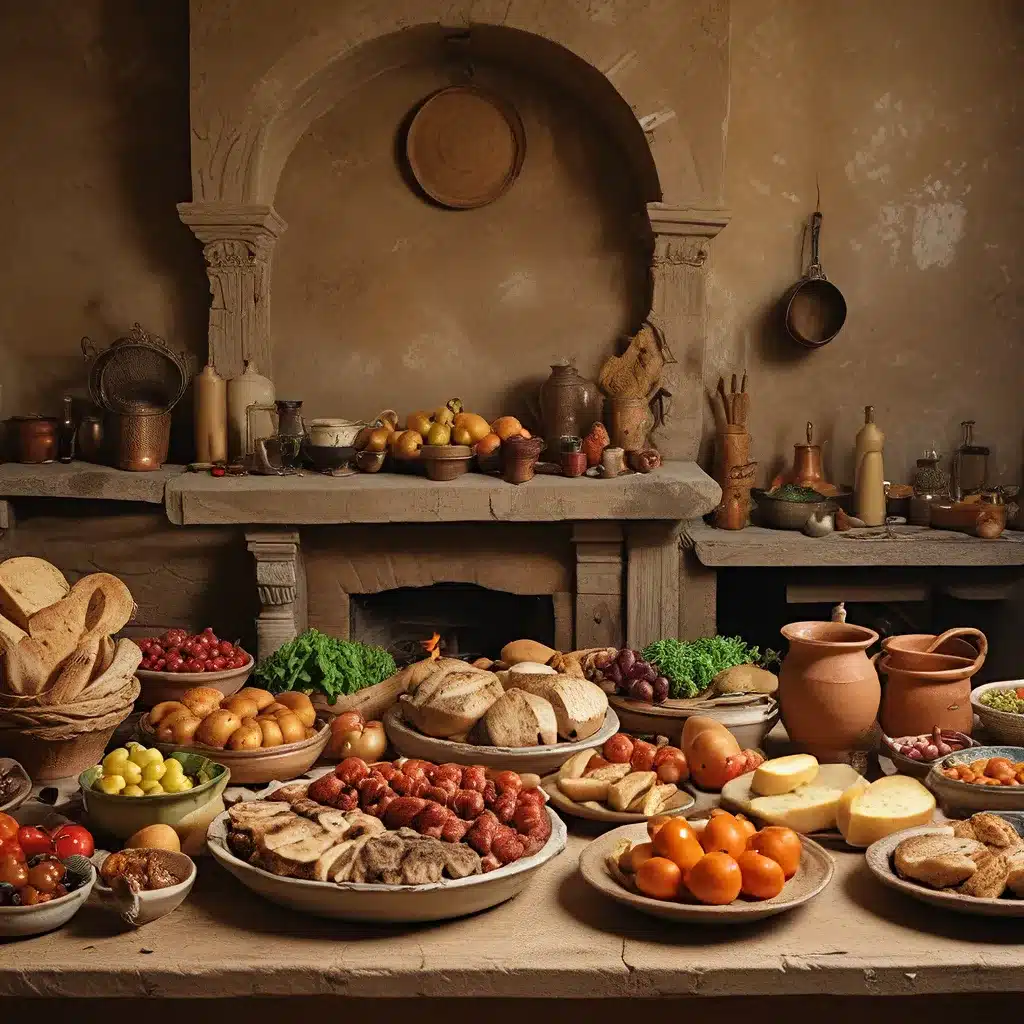
In the vast expanse of human history, the culinary legacies of ancient civilizations have long captivated the imaginations of food enthusiasts, historians, and cultural explorers alike. Amidst the ruins and artifacts that whisper of bygone eras, the culinary practices of antiquity offer a unique window into the lives, beliefs, and traditions of our ancestors.
One such civilization that has captivated the modern palate is ancient Greece, whose cuisine continues to resonate with food lovers around the world. Tracing its roots back to the 8th century BC, ancient Greek cuisine presents a fascinating tapestry of flavors, ingredients, and culinary techniques that have stood the test of time.
Simplicity as the Essence of Antiquity
At the heart of ancient Greek cuisine lies a remarkable commitment to simplicity. With a limited selection of ingredients – including olive oil, honey, wine, grains, and various herbs – Greek cooks were able to create dishes that burst with flavor, elevating the most basic of ingredients to sublime heights.
This emphasis on simplicity was not merely a matter of choice, but a reflection of the ancient Greeks’ agrarian society and its reliance on the bounty of the land and climate. Olive trees, abundant in Greece, provided not only a crucial cooking staple but also a symbol of prosperity and peace. Honey, another staple, was revered not only for its culinary uses but also for its medicinal properties and its role in religious ceremonies.
The commitment to freshness and seasonality was another hallmark of ancient Greek cuisine. Ingredients were typically sourced locally, ensuring that each dish celebrated the region’s bountiful produce. This practice not only guaranteed peak flavor but also mirrored the cultural values of the ancient Greeks, who believed that sharing a meal was a sacred act that forged bonds between individuals and communities.
The Enduring Influence of Greek Culinary Traditions
The culinary legacy of ancient Greece extends far beyond its own borders, as evidenced by the widespread popularity of Greek flavors and techniques during the ancient Mediterranean world. One of the most famous sources that sheds light on this culinary cross-pollination is the Apicius cookbook, a Roman text from the 4th or 5th century AD, which contains recipes that draw heavily on Greek culinary traditions.
Dishes like Isicia Omentata, a precursor to modern meatloaf, reveal the fusion of Greek and Roman culinary practices, highlighting the enduring influence of Greek cuisine in the ancient world. The Apicius cookbook, often considered the earliest known cookbook in existence, serves as a testament to the widespread appreciation of Greek flavors and techniques during antiquity.
Reviving the Culinary Heritage of Ancient Greece
As modern food enthusiasts and chefs seek to uncover the lost flavors of the past, the revival of ancient Greek recipes has become a thrilling endeavor. While the task of faithfully replicating these ancient dishes may seem daunting, contemporary interpreters have found ingenious ways to honor the essence of these culinary traditions while catering to modern palates.
One approach is to incorporate locally sourced, seasonal ingredients that echo the regional diversity of ancient Greek cuisine. By giving a farm-to-table twist to timeless dishes, chefs and home cooks alike are able to capture the spirit of ancient Greek cooking while introducing it to new generations of diners.
Experimentation is also key in this culinary resurrection. Innovative chefs are not afraid to explore ancient Greek ingredients like fish sauce, a common condiment in the ancient world, and reimagine how they can be used in contemporary dishes. This creative spirit ensures that ancient Greek cuisine remains dynamic and relevant, continuously evolving to reflect the changing tastes and preferences of modern food enthusiasts.
The Importance of Cultural Preservation
The revival of ancient Greek recipes extends beyond the realm of gastronomy; it serves as a bridge between generations, connecting us with the traditions and stories of our ancestors. By savoring the flavors of the past, we not only indulge our palates but also contribute to the preservation of cultural heritage.
In a world that is constantly evolving, the rediscovery of ancient culinary practices reminds us that food is not merely sustenance, but a vessel for culture, history, and human connection. As we continue to explore and experiment with the culinary traditions of antiquity, we honor the enduring legacy of our forebears and ensure that the flavors and stories of the past continue to nourish and inspire us for generations to come.
Explore the The Lost Kingdoms website to delve deeper into the captivating world of ancient civilizations and their cultural significance.


